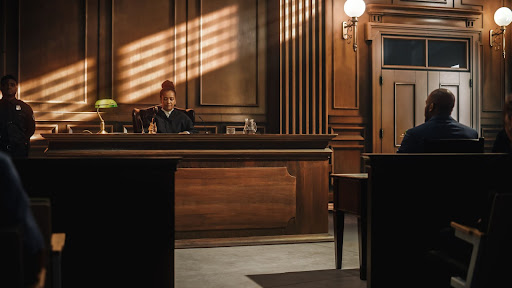What is Contempt of Court in family law?
Often, when facing a dispute involving divorce, child custody, child support, or spousal support, the Family Court Judge will issue orders to one or both parties.
These orders may direct parties to complete certain tasks (pay child support, for instance) or refrain from certain activities (stalking an ex-spouse). When one party fails to abide by their obligations, they may be considered in Contempt of Court.
If you’re concerned that you or your former partner may be in Contempt of Court in Maryland, it’s important to understand the legal implications of this action. Continue reading for more information and contact Coover Law Firm, LLC for legal advice about your specific situation.
How Maryland defines Contempt of Court
In simple terms, Contempt of Court is when one spouse fails to comply with a Court order. Examples of possible Contempt of Court in a family law case include:
- Failing to pay or incompletely paying Court-ordered child support or spousal support
- Refusing to return a child to the other parent as outlined in a visitation or custody order
- Refusing to transfer property as directed by the Court
- Not appearing at Court-ordered mediation sessions or hearings
Contempt of Court may be willful or non-willful. It may be the result of a simple misunderstanding or a genuine inability to comply, or it may be a deliberate refusal to abide by the Court’s orders. All circumstances are considered Contempt, but the outcome of each may vary.
Consequences of Contempt of Court in family law
There are two primary consequences for Contempt of Court: criminal and civil. The exact repercussions are up to the Judge’s discretion and depend on the type of order violated along with the circumstances surrounding the violation.
Criminal Contempt
Criminal Contempt involves the intentional or willful disregard of a Court order. If the offender is capable of complying with the order and fails to do so, they may be charged with Criminal Contempt.
The consequences of this type of Contempt are meant to punish the offender, and the case will be handled like any other criminal offense. Possible punishments include fines, jail, probation, or community service.
Civil Contempt
The goal of Civil Contempt is to bring the offender into compliance with the Court’s orders rather than to punish them. Civil Contempt generally involves a non-willful violation of a Court order, such as non-payment of child support due to financial hardship.
For that reason, jail time is not typically used as punishment for Civil Contempt. However, the Court may still use this consequence in some Civil Contempt situations as a first step to compel compliance with the order.
This is only an option if the Court has evidence that the offender can comply. Once the offender complies with the Court order, they may be released from jail.
In other circumstances, the Court will suspend certain rights or privileges until the order is fulfilled. Some Judges will be forgiving if the offender has made a good-faith effort to comply with the order.
For example, if someone is making partial payments on overdue support, the Court may approve a payment plan for the offender to fulfill their obligation.
Proving contempt of Court
To prove contempt in Maryland, you must show that the other party violated a clear court order. Here’s how:
Show the Court Order
- Provide the order that was violated, such as a child support or custody arrangement.
Show Non-Compliance
- Provide evidence that the other party didn’t follow the order, such as missed payments or refusal to return a child.
Demonstrate Willfulness or Inability to Comply
- Prove whether the violation was intentional or due to circumstances beyond their control, like financial hardship.
Use Supporting Evidence
- Present records, testimony, or documents that show the violation and its impact.
Proving contempt can be challenging, especially if the violation was not willful. An attorney at Coover Law can help gather evidence and present a strong case.
We can help you navigate your Contempt of Court case
If you believe your ex is violating a Court order, Coover Law Firm, LLC can help. Our Howard County family lawyer is here to provide the legal guidance and representation you need to protect your rights and interests.
Contact us at (410) 553-5042 to schedule a consultation with our team and learn more about your legal options. We look forward to helping you resolve your Contempt of Court case and giving you peace of mind.


